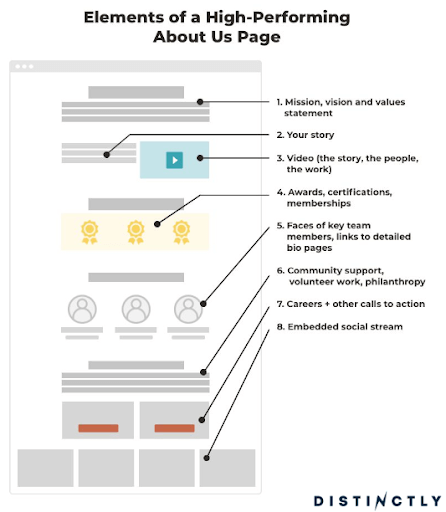Google’s ‘Helpful Content’ update: what we know and should you care?
What is the ‘Helpful Content’ update?
Google has announced it’s launching a new algorithm update next week, named the ‘Helpful Content’ update. Its primary objective is to reward websites that are producing authoritative and informative content for the user-first and not purely for SEO purposes. Optimise your content for users, not search engines is not new, but what does this mean?
Even with the ongoing improvements to Google search, users still encounter unhelpful websites that do not satisfy their expectations and meet their desired intent. Intent is an important consideration and something that should be the focal point of any content you produce as a business for your readership. Your content has to have a purpose. Learn what your audience requires and reverse engineer this, into informative content for your website, so you’re constantly meeting the demand and fulfilling their online experience.
“This update introduces a new site-wide signal that we consider among many other signals for ranking web pages. Our systems automatically identify content that seems to have little value, low-added value or is otherwise not particularly helpful to those doing searches.”
Google
The update is introducing a new ranking signal and is designed to negatively impact websites that produce high amounts of content that offer little value. Simply put, it favours quality over quantity. Your content output and overall strategy needs to be well constructed and target the pain points of your readership. This may result in your user converting, or at least spending time digesting the information which answers their question. To confirm, this is not a manual action.
There isn’t much notice given by Google for this update but then all websites should already be producing useful content for their audiences and a lot of this information should be for reassurance, if anything. But there are added value initiatives you can apply to your content, which we’ll discuss later
What should you do if you’re impacted
With any comprehensive analysis, it’s important to allow time to establish any negative trends so you can clearly remedy any pieces of content which are considered ‘unhelpful’. Google Search Console and Google Analytics will help you to clearly see any drops in organic traffic, conversions and keyword rankings.
Undertaking a content audit and assessing all of the above questions with their relevant metrics will at least provide a clear picture and establish some priorities. From this, you’ll be able to review the underperforming pages which show a decline in visibility.
Focus and questions
Google has shared some insight into what you should be focusing on and the questions you should set yourself when reviewing your website’s content:
- Do you have an existing or intended audience for your business or site that would find the content useful if they came directly to you?
- Does your content clearly demonstrate first-hand expertise and a depth of knowledge (for example, expertise that comes from having actually used a product or service, or visiting a place)?
- Does your site have a primary purpose or focus?
- After reading your content, will someone leave feeling they’ve learned enough about a topic to help achieve their goal?
- Will someone reading your content leave feeling like they’ve had a satisfying experience?
The biggest mistake or oversight that tends to happen with content is the fixation on quantity and not looking back at the previous pieces that could be improved. Users like freshness. They are not interested in outdated material which will not add value to their online experience. An underrated tactic would be to review these past pieces and assess how they can be improved and what type of queries are gaining traction. This would form the basis of user pain points and clear content gaps you can easily close to improve your visibility for these pieces. Do not obsess over keyword search volumes and focus your efforts on answering the question.
Along with the content, you need to consider how your website behaves/functions and whether this has had a negative impact on user experience. In other words, having well-sourced content backed by credible authors isn’t enough if your website bombards users with frustrating interstitial content which will likely result in users leaving the website. These trust signals have to be naturally incorporated across your site design, content and overall package – so continuously put yourself in your readership’s shoes and evaluate whether this content is valuable.
The importance of E-A-T and the role it plays
E-A-T is an acronym that stands for expertise, authority and trust. The importance of E-A-T was heightened and formed after the Medic algorithm update released back in August 2018 which affected a high number of YMYL (Your Money Your Life) websites. This meant that your website’s content needs to be credible and a safe and trustworthy space to visit. These three terms should always be at the forefront of your digital strategy, especially when ideating and producing content for your users.
As users are spoiled and sometimes overwhelmed with choice when it comes to searching online, it’s critical your website stands out from the competition. One element which adds a considerable amount of weight is showcasing authorship and being more transparent on where your content has originated from.
E-A-T in action
Users searching for symptoms of a specific condition are going to trust NHS or WebMD type websites as they include scientifically backed research and the website ensures users feel this too during their experience.
One website which sets a benchmark for authoritativeness and overall quality in its design, content and overall offering is Examine.
Another example of enriching credibility and building trust through their content is Healthline with their transparency on the editorial process:

These initiatives are all part of making your content trustworthy and ensuring users feel comfortable when navigating on your website. These tactics are worth incorporating as the majority are applicable, regardless of your niche. For websites that provide blog content, think about the collection of sources and clearly cite where they’ve come from. Clearly display an author bio and develop profile pages for ongoing contributors. This will add more weight and strengthen your expertise in the niche you operate in and ultimately, separate you from the competition.
A great example of a dedicated profile page template can be found below, as this encapsulates everything you should consider when promoting expertise behind content:

Closing thoughts
The ‘Helpful Content’ update will be released this week and is bound to cause some visibility turbulence for impacted websites. We expect more noise and learnings to come out of this update but the fundamentals are quite clear – focus on your users and only your users. Address their pain points and ensure each piece of content on your website has a purpose.
Quality over quantity rules. Make content audits a normality every 6 months to a year to ensure your content has an element of freshness and sets a high standard for the niche you operate in. Be transparent and showcase your credibility where applicable, whether through authorship, content structure or your overall site design and value propositions.
Google shared a handy list that is worth digesting when evaluating your content strategy. If you are answering ‘Yes’ to any of these questions, then your strategy needs to be reevaluated:
- Is the content primarily to attract people from search engines rather than made for humans?
- Are you producing lots of content on different topics in hopes that some of it might perform well in search results?
- Are you using extensive automation to produce content on many topics?
- Are you mainly summarising what others have to say without adding much value?
- Are you writing about things simply because they seem to trend and not because you’d write about them otherwise for your existing audience?
- Does your content leave readers feeling like they need to search again to get better information from other sources?
- Are you writing to a particular word count because you’ve heard or read that Google has a preferred word count? (No, we don’t).
- Did you decide to enter some niche topic area without any real expertise, but instead mainly because you thought you’d get search traffic?
- Does your content promise to answer a question that actually has no answer, such as suggesting there’s a release date for a product, movie, or TV show when one isn’t confirmed?
The ‘Helpful Content’ update will be released shortly and Distinctly will add further thoughts on this in due course.



